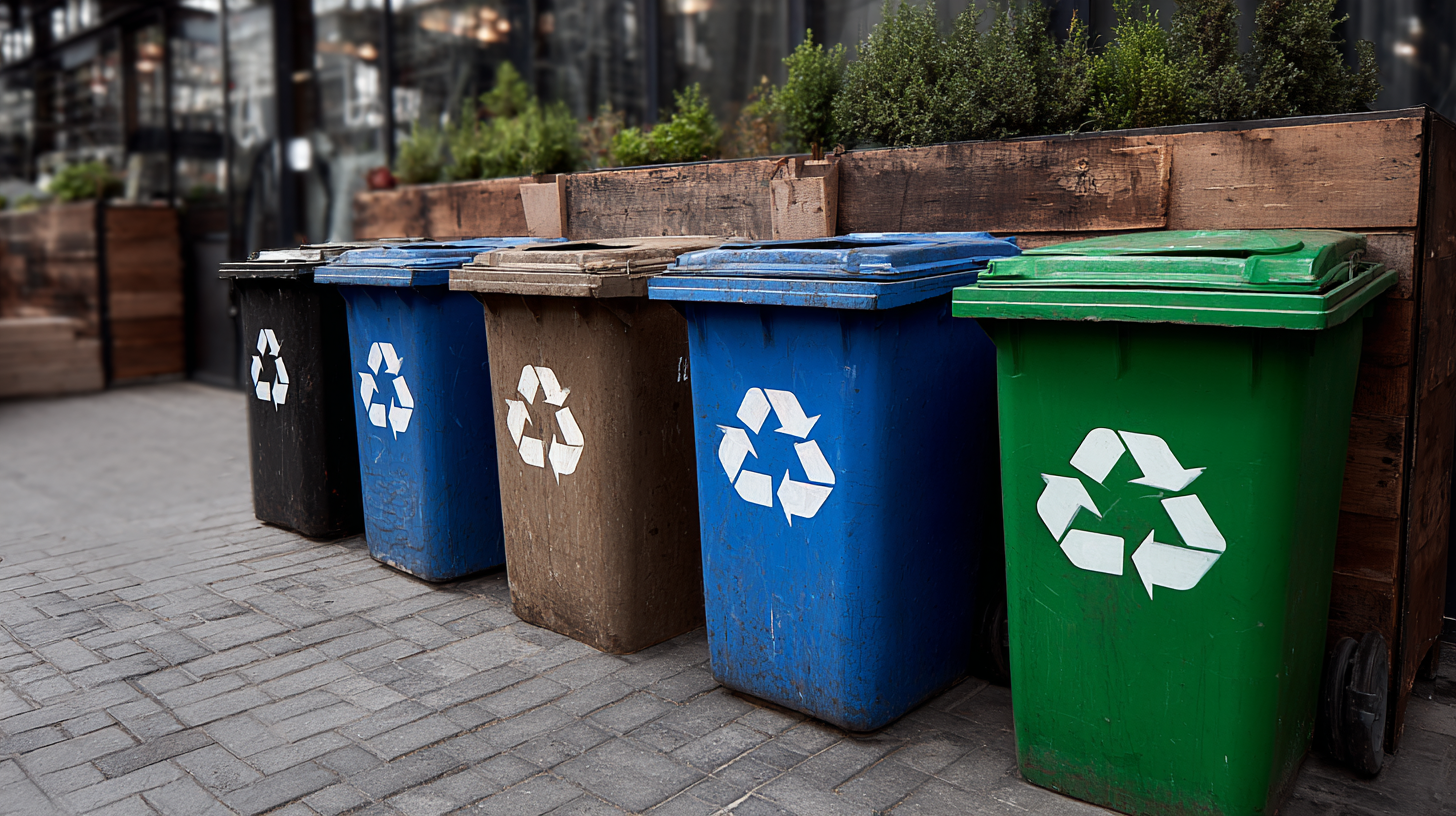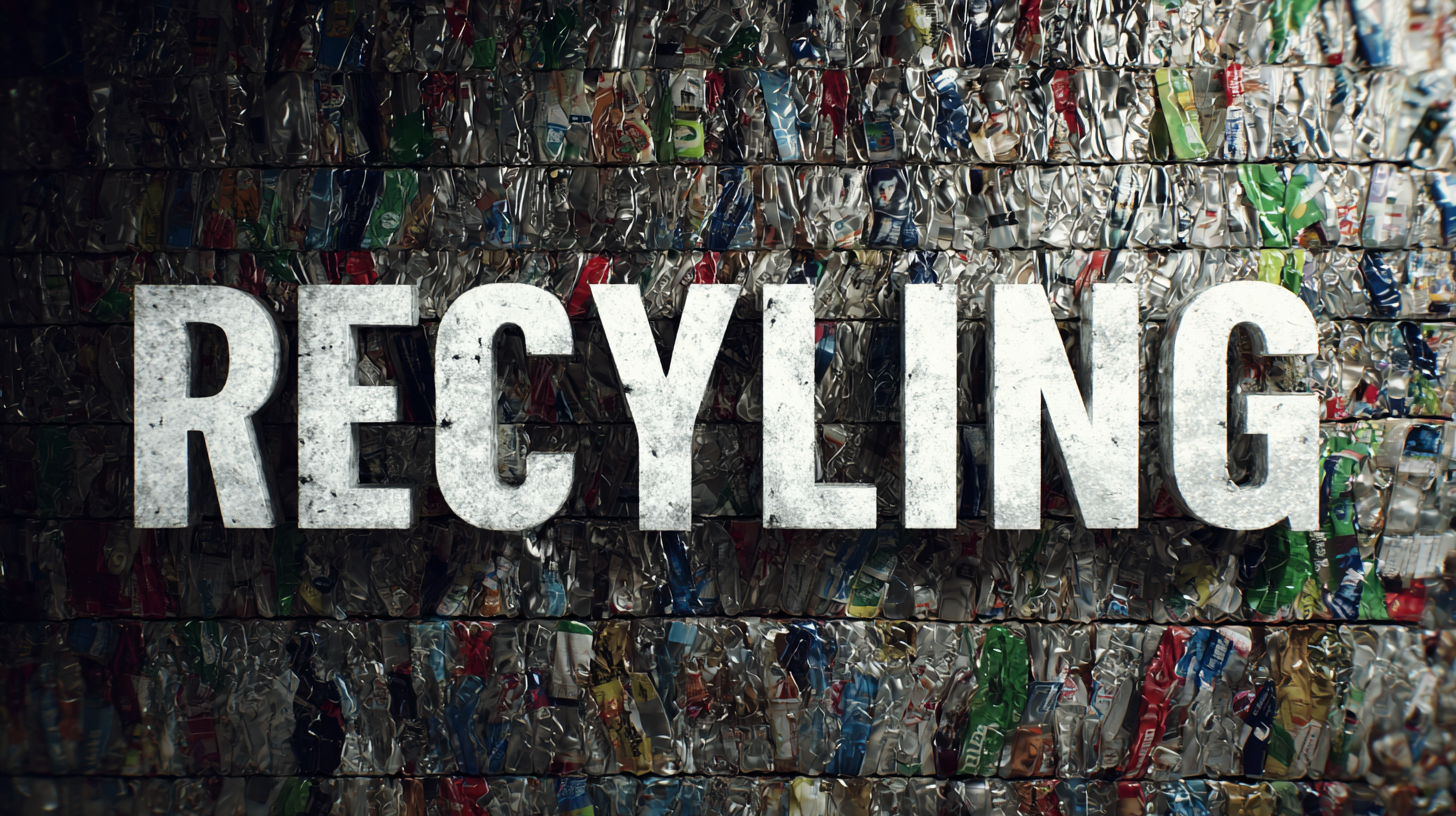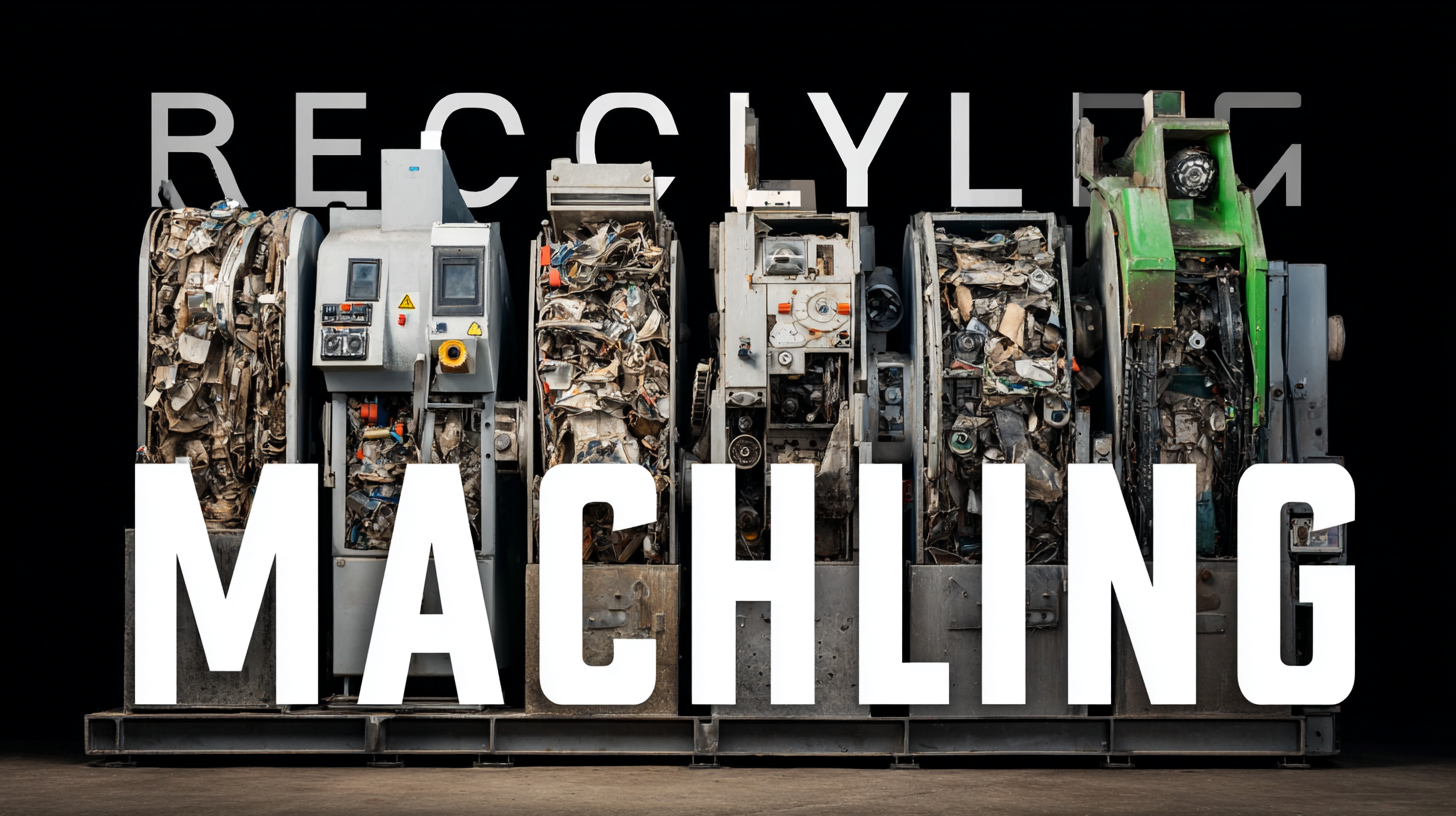
10 Compelling Reasons to Choose the Best Recycling Machine for Your Business
In today's environmentally conscious world, the importance of effective waste management cannot be overstated, and this is where a reliable Recycling Machine comes into play. As businesses seek sustainable alternatives to traditional disposal methods, investing in high-quality recycling equipment has become a strategic move. Not only does a well-chosen Recycling Machine minimize waste and promote a circular economy, but it can also reduce operational costs and enhance brand reputation. With various options available, from compact machines for small enterprises to large-scale solutions for industrial use, understanding the compelling reasons to choose the best recycling machine for your business is vital. This blog will delve into ten key factors that will help you recognize why opting for a first-rate recycling machine is not just an environmentally responsible choice, but a sound business decision as well.

Benefits of Reliable After-Sales Service in Recycling Machines
 When investing in a recycling machine, one of the most crucial factors to consider is the quality of after-sales service provided by the manufacturer. Reliable after-sales service not only ensures that your equipment operates efficiently but also helps in minimizing downtime. Technical support can address any operational hiccups you may encounter, allowing you to maintain productivity. In a field where timely recycling is key to both profitability and environmental responsibility, having access to expert assistance can be a game-changer.
When investing in a recycling machine, one of the most crucial factors to consider is the quality of after-sales service provided by the manufacturer. Reliable after-sales service not only ensures that your equipment operates efficiently but also helps in minimizing downtime. Technical support can address any operational hiccups you may encounter, allowing you to maintain productivity. In a field where timely recycling is key to both profitability and environmental responsibility, having access to expert assistance can be a game-changer.
Furthermore, good after-sales support often includes regular maintenance and timely updates, which contribute to the longevity of your recycling machine. Manufacturers who offer comprehensive service contracts or maintenance plans can significantly reduce long-term operational costs by preventing minor issues from escalating into major repairs. Additionally, being able to consult with knowledgeable professionals about optimizing your recycling processes can lead to further enhancements in efficiency and output. Thus, selecting a machine backed by reliable after-sales service can be a pivotal decision, paving the way for both immediate and lasting success in your recycling efforts.
Understanding the Impact of Maintenance Costs on Your Business Operations
When selecting a recycling machine for your business, one critical aspect that often gets overlooked is the impact of maintenance costs on your overall operations. According to a report by the Recycling Research Institute, businesses can incur up to 30% of total operational costs in maintaining their recycling equipment. Choosing a machine with a high reliability rating can mitigate these costs significantly, saving you both time and money in the long run.
Additionally, a study published by the National Recycling Coalition highlights that businesses with lower maintenance frequency not only enjoy better machine uptime but also record productivity improvements of up to 25%. Investing in advanced recycling technologies that come with enhanced durability and lower maintenance needs can therefore lead to more efficient operations. With an initial higher investment, the long-term savings on maintenance and operational disruptions can greatly enhance your business's profitability.
Maintenance Costs of Different Recycling Machines
Choosing a Recycling Machine: A Step-by-Step Guide
When selecting the right recycling machine for your business, it’s essential to follow a systematic approach to ensure you make an informed choice. Start by assessing the types of materials you will be recycling. According to a report by the National Recycling Coalition, the U.S. recycled approximately 94 million tons of materials in 2020. Understanding your business's specific needs can lead you to a machine that is designed to handle those materials effectively, whether it's plastics, metals, or paper.
Next, consider the machine’s capacity and efficiency. A study published in the Journal of Cleaner Production highlights that advanced recycling technologies can increase processing efficiency by up to 30%. This means quicker turnaround times and greater output, which are vital for a business-minded approach. Additionally, evaluate the maintenance requirements and the total cost of ownership, as some machines may have lower upfront costs but lead to higher operational expenses in the long run. By following these steps, you can streamline the selection process and invest in a recycling machine that aligns with your business goals.
Maximizing Efficiency: Best Practices for Using a Recycling Machine
Maximizing the efficiency of recycling machines is pivotal in making a significant impact on waste management, especially in the realm of e-waste recycling. With the global e-waste volume expected to reach 74 million metric tons by 2030, best practices for utilizing recycling machines are essential for businesses aiming to tackle this growing challenge. Incorporating advanced sorting technologies not only enhances recovery rates but also minimizes the environmental footprint. Research indicates that optimized sorting processes can increase recycling efficiency by up to 40%, translating to higher yields of reusable materials and reduced operational costs.
Implementing artificial intelligence (AI) in recycling operations is another avenue that enhances efficiency. AI-driven systems can predict material flows and optimize processing times, resulting in more streamlined operations. Studies show that AI integration can enhance the management of scrap metal recycling by improving sorting accuracy and reducing waste, thereby aligning with the principles of a circular economy. Businesses adopting these technologies are not just improving their bottom line; they are also contributing to sustainable practices that benefit the community and environment. By embracing these best practices, companies can confidently position themselves at the forefront of the recycling industry.

Evaluating Long-Term Costs vs. Short-Term Savings in Recycling Equipment
In the realm of sustainable business practices, the choice of recycling equipment is pivotal. When evaluating long-term costs versus short-term savings in recycling machinery, it's crucial to analyze the total cost of ownership (TCO). According to a report by the Association of Plastic Recyclers, businesses that invest in advanced recycling technologies can see a TCO reduction of up to 30% over five years compared to traditional machines. This is largely due to lower operating costs, decreased maintenance expenses, and enhanced efficiency that modern equipment offers.
Moreover, the initial investment in high-quality recycling machines may seem daunting, but the potential savings are significant. A study by the Recycling Partnership indicates that companies that adopt high-performance recycling systems often experience a 50% increase in material recovery rates, translating into greater revenue from recycled materials. While cheaper machines might promise immediate savings, they typically lead to higher operational costs and lower material yields, resulting in a false economy that hampers long-term growth and sustainability. Adopting the best recycling machine is not merely an expense; it's a strategic investment in a company’s future profitability and environmental responsibility.
10 Compelling Reasons to Choose the Best Recycling Machine for Your Business - Evaluating Long-Term Costs vs. Short-Term Savings in Recycling Equipment
| Reason | Long-Term Cost Savings | Short-Term Savings | Environmental Benefits | Efficiency |
|---|---|---|---|---|
| Increased Material Recovery | Yes | Initial investment may be high | Promotes sustainable practices | High |
| Lower Waste Disposal Costs | Yes | Reduced fees over time | Less landfill impact | Medium |
| Government Incentives | Potential for grants | Immediate tax benefits | Fosters community support | Low |
| Enhanced Brand Image | Yes | Can attract customers | Promotes eco-friendly reputation | High |
| Advanced Technology Adoption | Yes | Initial learning curve | Improved process automation | Very High |